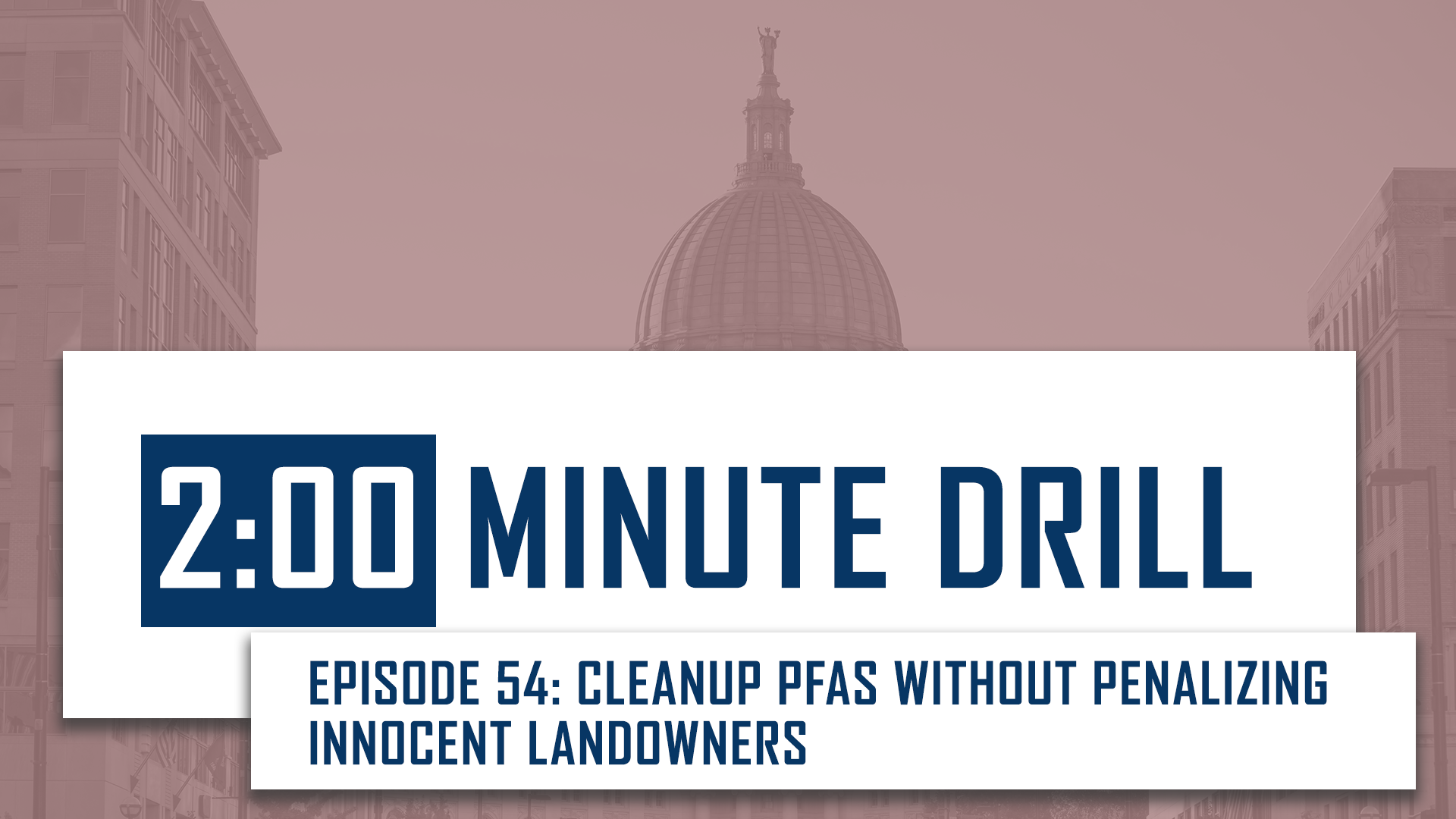MADISON — Wisconsin CEOs say the state is heading in the right direction, but taxes, regulations and the economic slowdown continue to hamper growth, a new WMC Economic Outlook Survey found.
“Wisconsin CEOs are bullish on Wisconsin, and 93 percent say our state is headed in the right direction,” said Kurt R. Bauer, WMC president/CEO. “But, taxes and regulations continue to be the top policy concerns for Wisconsin job creators, along with the national economic slowdown.”
WMC is releasing the results of its semi-annual Economic Outlook Survey in conjunction with the State of Wisconsin Business Conference in Madison at the Monona Terrace Community and Convention Center. Governor Scott Walker is slated to discuss improving the state’s business climate at the conference, and J.P. Donlon, editor of Chief Executive Magazine, is scheduled to explain how Wisconsin could become the most pro-business state in the nation.
WMC has set a goal for Wisconsin to join the ranks of the Top 10 pro-business states.
WMC Economic Outlook Survey 2013 Highlights
TOP POLICY PROBLEM – Thirty percent said the economic slowdown is the top policy concern for Wisconsin, and 23 percent said taxes were their top concern.
TOP BUSINESS CONCERN – Forty-two percent said the economic slowdown is their top business concern, and 18 percent said health care, 9 percent said regulation, and 14 percent said taxes.
HOW TO HELP BUSINESS – When asked what’s the one thing that state government could do to help your business, CEOs said curb regulations and cut taxes. Twenty-two percent said curb regulation, and 16 percent said curb taxes.
IMPROVING THE BUSINESS CLIMATE – CEOs said a wide range of improvements are needed to improve the state’s business climate. Twenty-two percent said the state should be more pro-business in general, 20 percent said cut taxes, and 17 percent said curb regulations.
BUSINESS GROWTH – Only 4 percent said they expect good growth at their companies in the next 6 months, and 37 percent predict moderate growth. Sixteen percent predict decline.
STATE ECONOMIC GROWTH – Forty-one percent see moderate growth in Wisconsin, and 13 percent see a decline.
NATIONAL ECONOMIC GROWTH – Only 18 percent see moderate growth for the national economy and 42 percent predict a decline.
WAGES – Fifty-five percent predict wage hikes of 2 percent or less, and 30 percent predict wage hikes of 2.1 percent to 2.9 percent.
NEW JOBS – Only 24 percent of CEOs say they will be creating jobs in the next six months. That’s down from 62 percent from the WMC survey released in June 2012.
HIRING TROUBLE – Some 55 percent say they are having trouble hiring, and 67 percent said they cannot find qualified applicants.
RIGHT DIRECTION – Some 93 percent said Wisconsin is headed in the right direction, and only 7 percent said off on the wrong track.
STATE PRO-BUSINESS? – Some 92 percent said the state is pro-business, with 40 percent saying Wisconsin is very pro-business.
“Wisconsin has made great strides to improve our business climate,” Bauer said. “We need to continue to cut taxes, curb regulations, and litigation to make our state more pro-business. We need mining reform now to send a signal that we are serious about improving our business climate.
”At the federal level, we need our leaders to come together to avoid going off the fiscal cliff as that would send greater uncertainty into our national business climate,” Bauer added.
WMC has conducted the WMC Economic Outlook Survey of CEOs since 1997. WMC represents 3,500 Wisconsin businesses and is considered the state’s most powerful and influential business association.
Related Material:
WMC Economic Outlook Survey: November 2012 (full results)
For Further Information Contact:
Kurt R. Bauer, (608) 258-3400
Jim Pugh, (608) 219-0157
###





